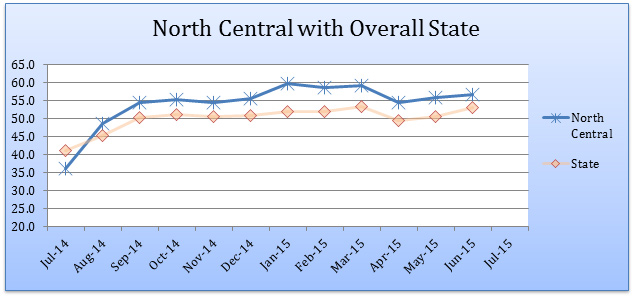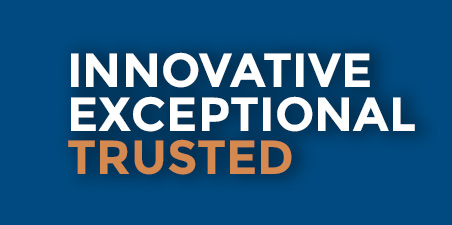Going Beyond the Expected: KRA & Baltimore City Department of Social Services
Much of the available workforce is encumbered by low job skills, lack of education, and/or personal circumstances that make obtaining a job at a living wage very difficult. In contrast, many area employers require at least a high school education, making employment opportunities for these residents even more scarce.
The Baltimore City Department of Social Services has contracted with KRA Corporation to operate a workforce-services program for recipients of public-assistance benefits. KRA/Baltimore’s Work Participation, Placement, and Support Services Program has engaged more than 250 private- and public-sector partners that provide valuable options for pre-employment development, skills-training, and job-placement for TANF jobseekers to learn, work, and achieve self-sufficiency.
In the last 8 months, KRA’s commitment to customer service and quality standards has resulted in more than 650 Baltimore City residents being placed into gainful employment opportunities.
Path to Career Attainment: KRA & Camden County Workforce Investment Board
KRA/Camden’s workforce-development programs serve Adult TANF recipients, with dependent children; Adult General Assistance recipients, without dependent children; TANF Out-of-School Youth (OSY), ages 16-20; and OSY not receiving TANF benefits. Many customers have limited or no work experience, or have worked in industries with little growth potential. For these jobseekers, qualifying for and finding work that provides a living wage and stability is extremely difficult.
We are addressing these workforce challenges successfully, generating extremely positive outcomes for jobseekers, using KRA’s Quality and Customer Service and Regionalism and Models to focus on identifying viable career paths in one of the region’s high-demand industries, i.e. Allied Healthcare.
At the same time the region struggles with above-average unemployment rates, there are many open opportunities for Certified Nursing Assistants (CNA). For this occupational group, employment is projected to stay strong due to the high demand for healthcare services related to an aging and elderly population; an increasing need for home-based healthcare; and unfilled CNA positions in assisted-living facilities, nursing homes, and hospitals.
According to BLS statistics, growth is expected to increase at a rate of 21%, creating more than 30,000 new jobs annually by 2022. Unfortunately, however, demand in this fast-growing sector has resulted in huge increases in the cost of CNA-credentialing programs, making them unattainable for many jobseekers, including our own TANF/OSY customers.
With CCWIB providing indispensable tuition-financing, KRA/Camden was able to develop a dynamic 3-way partnership to create the Education, Professionalism, and Entrance into Certification Program, a promising career pathway for OSY who receive TANF benefits.
KRA/Camden OSY Instructors provide Education, ensuring that enrollees without high school diplomas obtain a GED, required for training. Professionalism includes many workforce-prep activities and services, provided by Career Agents, who also collaborate with partner, Image and Attitude, ensuring occasion-appropriate attire when needed. And, Entrance and Certification are achieved through Prep Institute, the CNA training/credentialing vendor-partner.
Anticipating that the CNA career-development program might prove challenging for some participants, OSY staff strive continuously to prevent disappointment, frustration, and lack-of-progress, a recipe for almost certain failure. Preemptively, an Individual Strategic Plan (ISP), with realistic and measurable goals and objectives, is developed with each student. Continuous ISP review-and-update provides just the motivational incentive needed by the students to complete the program, and to begin self-sustaining careers in a high-growth, in-demand occupation.
Expediting Hiring & Filling the Talent Pipeline: KRA & Camden County
KRA/Camden’s workforce-development programs serve Adult TANF recipients, with dependent children; Adult General Assistance recipients, without dependent children; TANF Out-of-School Youth (OSY), ages 16-20; and OSY not receiving TANF benefits. Many customers have limited or no work experience, or have worked in industries with little growth potential. For these jobseekers, qualifying for and finding work that provides a living wage and stability is extremely difficult.
We are addressing these workforce challenges successfully, generating extremely positive outcomes, for employers and jobseekers, through KRA’s Business Engagement and Quality and Customer Service Models, focused on identifying viable career paths in the County’s high-demand industries, e.g. hospitality and foodservice.
Consequently, KRA/Camden targeted several national companies for outreach and relationship-building, efforts that generated partnerships with Loews Resorts and Chipotle Mexican Grill, both of which are growing quickly in the region, hiring and training jobseekers they believe can grow with them. Customers who have accepted job offers from Loews and Chipotle are succeeding on-the-job, with some becoming leaders of their crews and teams.
Periodically, Loews and Chipotle representatives conduct interviews with KRA/Camden candidates onsite, providing additional training for their existing managers, and extending training to customers, who receive instant feedback on improving their interviewing skills.
These partnerships have provided Loews and Chipotle access to a much broader talent pool, expediting their hiring processes, and simultaneously providing KRA/Camden customers jobs in growth industries with opportunities for financial self-reliance, stability, and career advancement.
Data Driven Results for Jobs First: KRA & North Central CT Capital Workforce Partners
Connecticut’s North Central Region is challenged by an unemployment rate of 10.7% (August 2015), higher than both the State and national averages. This is due, in part, to much of the available workforce lacking the job-skills to qualify for area employers’ openings, as well as an aging and retiring population whose expertise is not being replaced, creating a wide skills-gap that businesses are filling with talent from outside the Region.
KRA Corporation is funded by Capital Workforce Partners (CWP), the Region’s Workforce Board, to provide workforce-services for both WIOA and TANF jobseekers through CTWorks, an operation of four One-Stop Centers and a Hartford Public Library satellite office. Through successful CWP-funding partnerships, KRA has been able to expand CTWorks services through many special-population training and employment initiatives.
For one of these programs, Jobs First Employment Services (JFES), KRA used its Quality and Customer Service and Regionalism Models to design and implement a data-driven system for improving program outcomes, which has proved so successful that the North Central Region is consistently outperforming other TANF-related programs throughout the State.
KRA Career Agents monitor JFES start-and-end dates to ensure that customers have indeed begun training, and to determine enrollees’ needs during the program. Once JFES training is completed, customers are monitored to ensure they received credit for finishing, as well as their completion credential.
To ensure that JFES participation is meeting and/or exceeding the 50% net-participation goal, Career Agents receive updated performance reports weekly, which are used to continuously improve performance throughout the month. At the beginning of each month, they study reports with baseline performance data, ensuring that participants are appropriately scheduled for, and attending, compulsory JFES activities, and when necessary, developing remedial-action plans for participants in danger of not meeting JFES program requirements.
The graph below provides performance data according to State-published statistics.


KRA also monitors unsubsidized-employment placements on a weekly basis. Based on established goals, a performance statistic is delivered to each Career Agent, comprised of a percentage of participants employed, as well as how many additional participants may be needed to reach that goal. The chart below shows the trend, over time, in unsubsidized employment as a percentage of total enrolled TANF recipients.
| Jul | Aug | Sep | Oct | Nov | Dec | Jan | Feb | Mar | Apr | May | Jun | |
| Average Percent Employed | 20.5 | 20.8 | 20.1 | 21.0 | 24.7 | 21.7 | 21.45 | 20.3 | 20.0 | 21.2 | 23.0 | 22.5 |
| Average Percent Employed | |
| July | 20.5 |
| August | 20.8 |
| September | 20.1 |
| October | 21.0 |
| November | 24.7 |
| December | 21.7 |
| January | 21.45 |
| February | 20.3 |
| March | 20.0 |
| April | 21.2 |
| May | 23.0 |
| June | 22.5 |
Career Agents are provided with monthly exit data for following up on those scheduled to exit the JFES program as a result of becoming employed. They confirm employment status, and either end participation or review the case to determine if further job-search assistance is needed, thus avoiding premature program exit. When the customer does exit successfully, a completed quarter report requires Career Agents to follow-up with customers, providing support, as necessary, through the four quarters after program exit.
The KRA/CTWorks data-driven process to monitor program outcomes in real time has helped to rank the North Central Region consistently as a top-performer (either #1 or #2) in the State with regard to JFES-participation rates, while maintaining the highest number of customers served in the State since 2009. KRA’s quality customer service continues to improve through ongoing staff training opportunities and increased on-demand reporting capabilities, which ultimately, improves our levels of servicing to internal and external customers.


 Dr. Boone’s 20+ years’ experience in the industry is extensive and her expertise in private-, public-, and non-profit sector workforce-services organizations is unparalleled, particularly in the Baltimore–Washington Metropolitan area.
Dr. Boone’s 20+ years’ experience in the industry is extensive and her expertise in private-, public-, and non-profit sector workforce-services organizations is unparalleled, particularly in the Baltimore–Washington Metropolitan area.






















